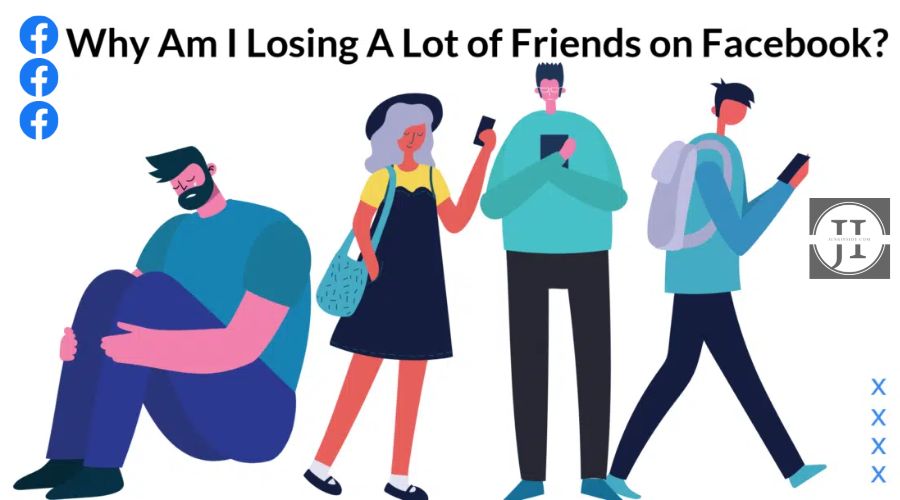In an age of constant connection, it’s easy to get lost in the sea of updates, status changes, and tweets. But not all social media activity is created equal. Some actions can make us appear distant and uninvolved, while others can overwhelm our friends’ feeds. And then there are those who stir up controversy with every post, creating a rift between themselves and their followers. In this blog post, we’ll explore three common social media mistakes that can damage our online relationships: lack of engagement, overposting, and polarizing content. Whether you’re a seasoned social media user or just starting out, these tips can help you stay connected without driving your friends away.
Lack Of Engagement: Ignoring Your Friends’ Posts
Ever scrolled through your social media feeds and noticed that you have not engaged with your friends’ posts lately? If this is something that you do often, you are likely guilty of lacking engagement on social media. Many people are guilty of this, especially when they have a busy lifestyle, but little do they know that it can affect their relationships.
Regular engagement with your friends on social media can help maintain a good relationship, but ignoring their posts sends the message that you don’t value the relationship. You don’t necessarily have to like or comment on every post, but occasional engagement can go a long way. While it may seem like a small thing, it can have a big impact on your friendships.
| Benefits of Engaging with Friends’ Posts: | Disadvantages of Ignoring Friends’ Posts: |
|---|---|
| 1- Maintains friendships 2- Enhances communication 3- Shows support | 1- Friends may feel ignored 2- Relationships may suffer 3- Lack of support may lead to resentment |
So, if you want to maintain the relationships that you have built, it is essential to engage with your friends’ posts. It is never too late to start. Begin by making a conscious effort to like, comment, or share your friends’ posts occasionally. Show your support for their achievements or let them know you’re thinking of them. You may be surprised at how a small act of engagement can brighten someone’s day.
Overposting: Bombarding Your Friends’ Feeds
Overposting can be quite frustrating for those on the receiving end of the constant updates flooding their feeds. Social media has made it easy to share our thoughts, photos, and even mundane tasks with our friends and followers, but moderation is key. Bombarding your friends’ feeds with too much content can result in a lack of engagement and even lead to them unfollowing you.
It’s important to keep in mind that social media is not just about posting for the sake of it, but about creating meaningful connections and interactions with others. Overposting can take away from the social aspect of these platforms and make them feel more like a one-way conversation. Your audience wants to see quality content that resonates with them, not just a constant stream of updates.
| Signs of Overposting: | Ways to Avoid Overposting: |
|---|---|
| 1- Your friends are not engaging with your posts 2- Your posts are repetitive 3- You are posting multiple times a day, every day | 1- Set a schedule for your posts to avoid excessive posting 2- Create quality content that resonates with your audience 3- Limit your posts to a few times per day |
If you find that you are overposting, take a step back and reassess your social media strategy. Instead of focusing solely on posting, consider engaging with your followers through comments and direct messages. This will not only increase engagement, but also help foster meaningful relationships with your followers.
In conclusion, overposting can do more harm than good when it comes to social media. It’s important to strike a balance between sharing quality content and not overwhelming your audience with an excessive amount of posts. By focusing on building real connections with your followers and being mindful of how much you post, you’ll be able to create a more engaged and loyal following.
Polarizing Content: Engaging In Controversial Topics
Engaging in controversial topics can be exciting and stimulating, but it can also have unintended consequences. The downside to taking a stance on a sensitive issue is that it can provoke strong reactions from people who disagree with you. Matters are made worse when you participate in online debates, where anyone can chime in with their opinion. In recent years, social media platforms have become hotbeds for heated discussions and arguments, often turning into full-blown battles.
When engaging in polarizing content, it’s crucial to be mindful of the impact your words can have on others. Offensive language and derogatory remarks can quickly escalate into personal attacks and name-calling. On the other hand, respectful and thoughtful arguments can encourage healthy discussions and help bring contrasting views together. It’s always important to listen to other people’s perspectives, even if they differ entirely from your own.
| Pros | Cons |
|---|---|
| 1- Stimulates critical thinking and encourages personal growth 2- Can help educate others and broaden awareness 3- Encourages healthy discussions and differing viewpoints | 1- Can cause personal attacks and name-calling 2- Offensive language can hurt and humiliate others 3- Arguments can turn nasty and cause emotional distress |
In summary, it’s okay to engage in controversial topics as long as you’re respectful and thoughtful of others. Don’t be afraid to voice your opinion but make sure it doesn’t turn into a personal attack. Listening to other viewpoints can broaden your perspective and help you grow as a person. Remember that on social media or any online platform, your words can have a significant impact, so use them wisely.











